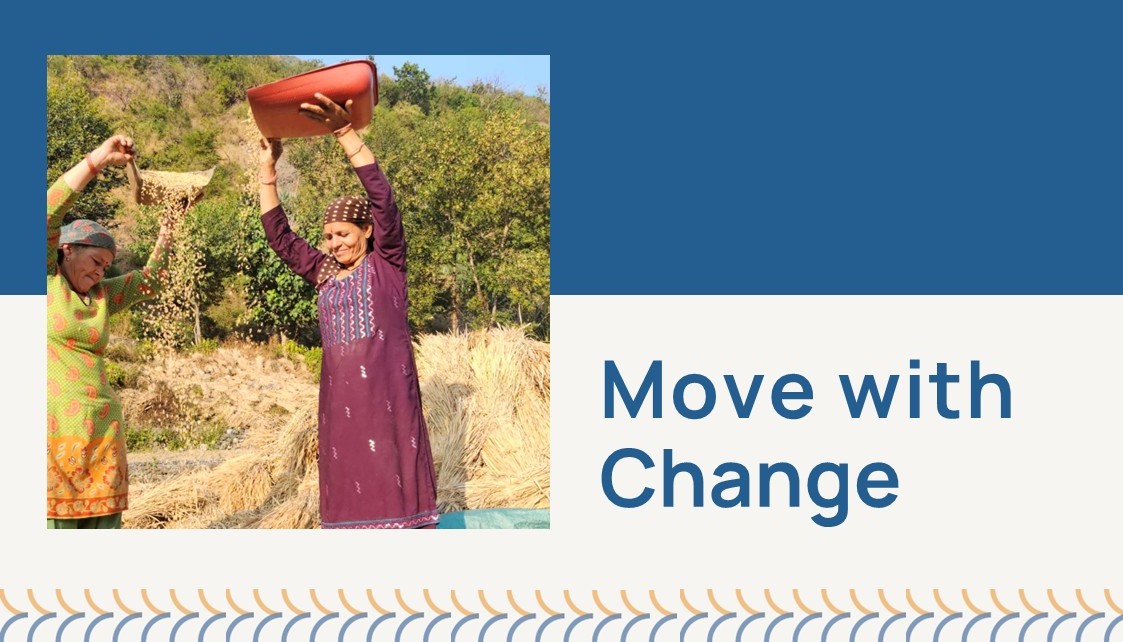Since 2009, Viva Farms has given emerging farmers the resources they need to build successful farming businesses. With the new administration freezing the federal funding they depend on, how can they continue their vital work?
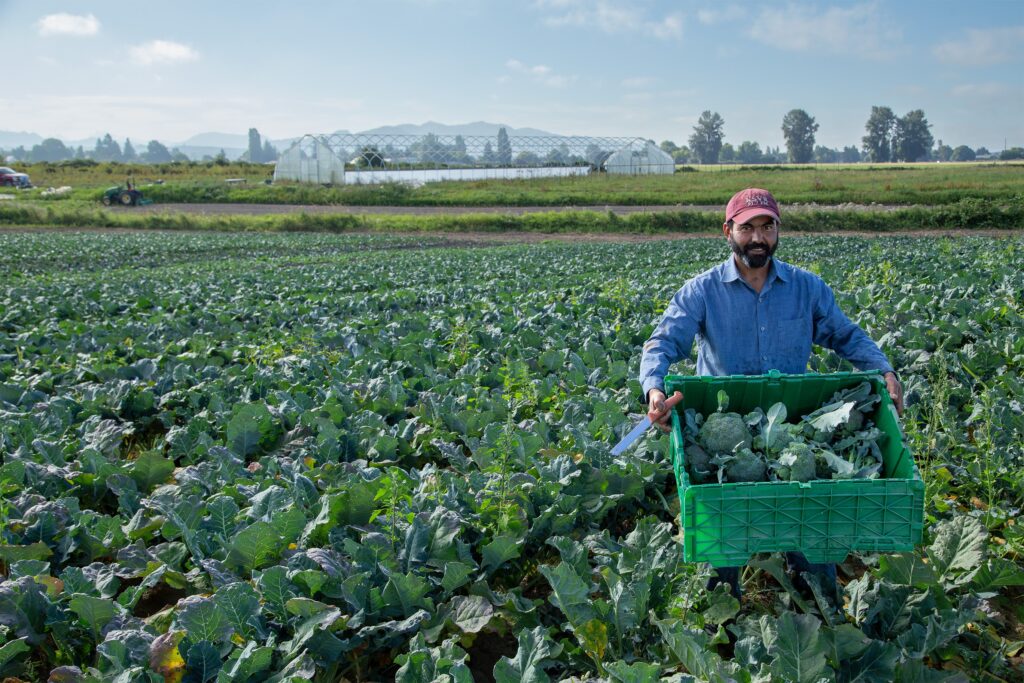
“We’re doing everything we can to launch the next generation of farmers,” says Viva Farms Executive Director Michael Frazier. “We want those farmers to be economically viable, and to work in a way that’s mindful of both people and the planet.”
From 100 acres of land in northwest Washington state, Viva Farms is working tirelessly to make agriculture work for the farmers of the future. Their work isn’t just critical – it’s urgent.
“The average age of a farmer is 59, and 70% of farmers are expected to retire in the next twenty years,” Frazier continues. “Many of the farms that have been farming for generations don’t have a next generation to take on that farm. So who is going to feed us moving forward?”
For more than 15 years, Viva Farms has answered that question by giving emerging farmers the resources they need to thrive. They empower aspiring and limited-resource farmers by providing bilingual training in holistic organic farming practices, as well as access to land, infrastructure, equipment, marketing and capital.
It’s a model that works. And for years, capital from the United States Department of Agriculture has helped them train and support more than 1,000 farmers across the region. But when President Trump took office, he quickly froze outgoing grants from the USDA – including the grants that supported more than 70% of Viva Farms’ budget.
What will it take to make sure that this vital social enterprise can continue to support the farmers of the future?
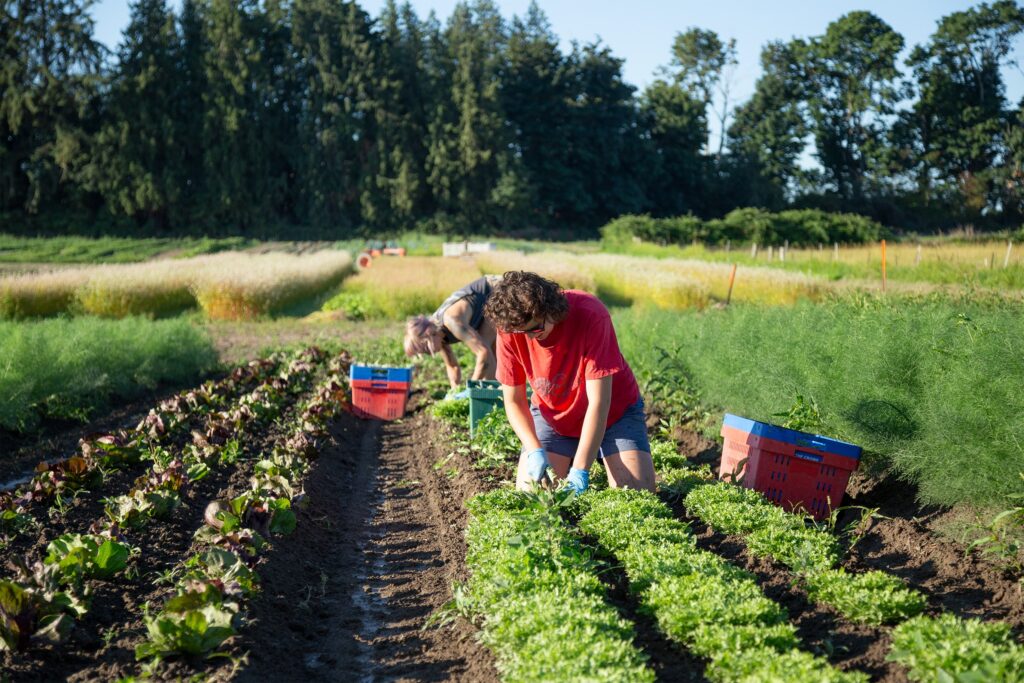
A successful model for a regenerative agriculture economy
A small group of community members supporting local farmworkers kept hearing the same story from Latinx farmworkers: they wanted to start their own farms, but lacked the financial resources to lease land and purchase equipment. They founded Viva Farms to address this problem – and support an innovative solution to the agriculture sector’s generational crisis.
Since then, Viva Farms has grown to meet the evolving needs of its community’s farmworkers. Most farmers start with the nonprofit’s Practicum on Sustainable Agriculture, an eight-month course where farmers learn about both organic production and small farm business management. The course is offered in both English and Spanish, and is also structured so that people can fully participate while still working a full-time job.
Farmers that wish to continue can apply to participate in the farm incubator program, where they receive further training, access to infrastructure and equipment, and – critically – access to small parcels of land where they can apply what they’ve learned firsthand. Financing from RSF helped Viva Farms purchase the land they needed to run the Farm Incubator and Agricultural Park programs for these emerging farmers – a partnership you can read about here.
Just as important to Viva Farms’ model are the less tangible pieces – such as connections to markets, and to other farmers.
Viva Farms runs their own CSA, which they price on a sliding scale and offer to customers using SNAP, so that everyone can access their local, organic food. They also work with Whole Foods and a variety of local retailers to sell farmers’ produce – produce they help store, package, and distribute.
“They don’t have to sell through us, but we’re a friendly market,” says Frazier. “Last year, farmers in our program sold $3 million worth of produce, and we helped them sell $1 million of that.”
Lastly, the community the farmers build ensures they learn more and grow faster than they could on their own. Farmers come into the program with vastly differing experience, says Frazier. Many of the Latinx and immigrant farmworkers they work with have deep experience with production, but haven’t had formal business training. In contrast, farmers from moderate- and high-income backgrounds often arrive with college degrees and some business skills but little farming experience.
By connecting these people who might not otherwise meet, Viva Farms facilitates deeper learning and builds community. “It’s farmers mentoring farmers, right?” says Frazier. “It’s one of the most beautiful things about this program.”
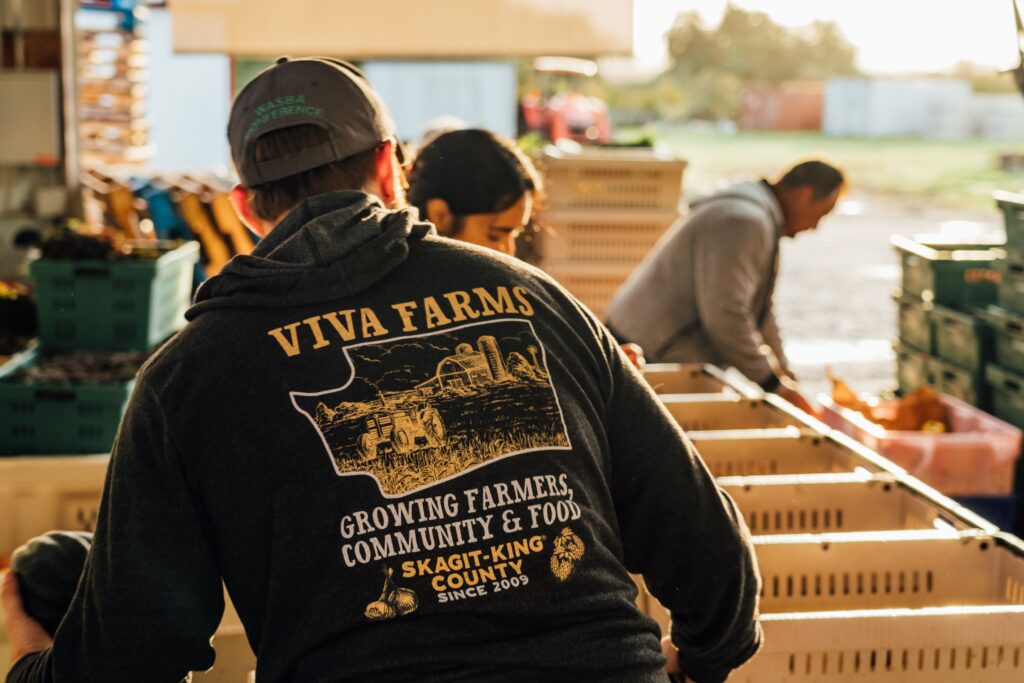
A major threat to Viva’s proven impact
Before President Trump took office, Viva Farms was gearing up to scale a critical piece of their work: financing farmers who wished to “graduate” from Viva and purchase their own land.
These are farmers like Francisco Farias. Originally from Michoacán, Mexico, Farias participated in the PSA, Farm Incubator, and Agricultural Park programs along with his brothers Juan and Sergio. Last summer, Viva Farms worked with agricultural lender Dirt Capital to secure a lease that would allow Farias to run his own farm. You can read more about that partnership on Viva Farms’ website.
This type of financing is critical for farmers taking the next steps to grow their business. But it’s increasingly hard to come by. Land is getting more expensive each year. Few lenders will finance this sort of emerging business – businesses that don’t yet have collateral. Agricultural lenders like RSF and Dirt Capital, federal programs like the USDA’s American Rescue Plan Technical Investment Program, and coordinating entities like Viva Farms are essential to building the partnerships that will support the farmers of the future.
But in February, a Trump administration executive order immediately froze billions of dollars’ worth of federal grants – including USDA grants that formed 70% of Viva Farms’ annual budget. This action didn’t just put a pause on Viva’s work to finance land purchases for organic farmers; it threatened their entire business.
“We were looking at laying people off and cutting hours back for pretty much everybody else,” says Frazier. “We were considering stopping the Practicum in Sustainable Agriculture because we wouldn’t have the capacity to run it.”
But literally the day after Frazier began scheduling conversations to lay off staff, Viva received a significant donation – enough to fund at least a month of operations. Including this donation, Viva has raised over $1 million to fund their core programs for 2025 and keep farmers farming.
“Viva and all of our farmers would have been ‘collateral damage’ if it wasn’t for the community showing up,” says Frazier. “If we hadn’t had remarkable support fall from the sky in this major time of uncertainty, we’d already be out of business.”
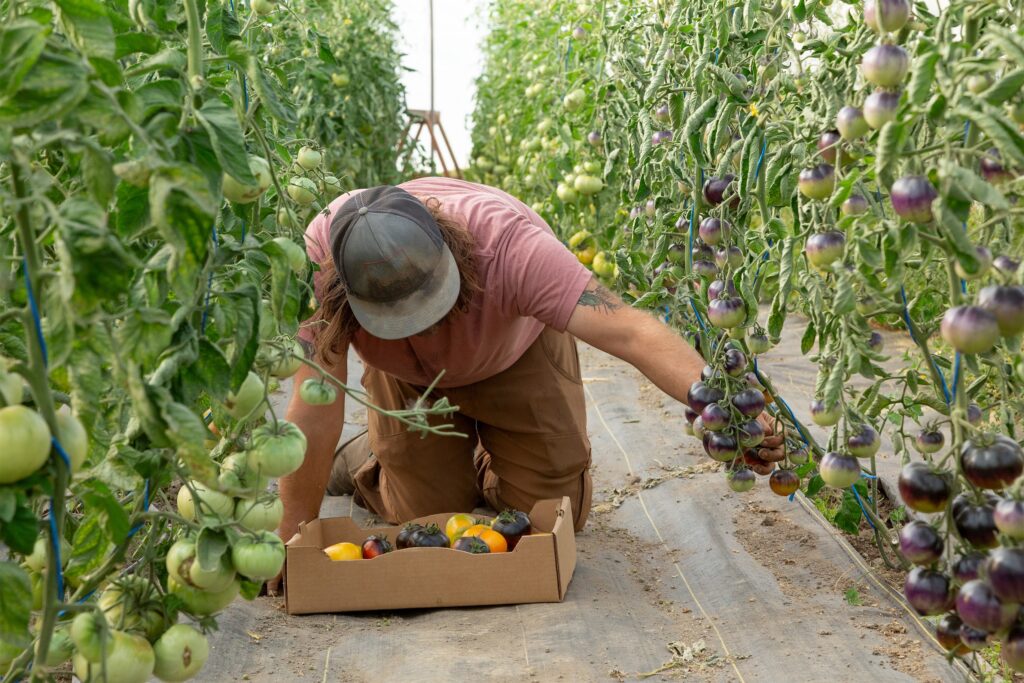
A proven model with an uncertain future
For now, Viva is able to keep its doors open. But in this new financial context, their future is uncertain.
After years of relying on steady support from the federal government, Viva Farms had to change its financial model overnight. “We’ve done great to raise money to keep the lights on,” Frazier acknowledges, “But it’s only going to keep the lights on for so long.”
Frazier hopes that the federal government might recognize how supporting organizations like Viva and the nation’s farmers could align with its political priorities. “Bringing manufacturing back to America is a big priority, right?” says Frazier. “Couldn’t bringing our food supply back to America be important as well? We believe that the health of our community is inextricably bound to the vitality of local agriculture.”
But unless the government has a change of heart, it’s going to take Viva Farms’ community to keep them in business. And Frazier sees a clear role to play for anyone who cares about local, sustainable agriculture – and the farmers who make it possible.
“We’ve always been as strong as the community that supports us. With USDA funding uncertain, we need individuals, families, businesses, and foundations to step in. There’s no better time than now.” says Frazier.
Buy local produce – directly from farmers if possible. Support your CSA. And support organizations like Viva Farms, who are doing everything in their power to support a regenerative farming future.
RSF proudly supports social enterprises like Viva Farms that work to build sustainable foodways around the world. Apply for a loan for your own social enterprise here. Learn more about investing in impact here.

